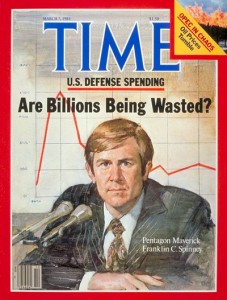
COMMENTS:
1. The “fact of” PDB distribution is well known; Administrations influence who is on the distro list.
2. Of the principals showcased here, some are (at least sort of) competent patriotic and some…well…
3. This article is, perhaps unknowingly, deceptive in that it creates an impression that USG is postured to continue mission 24/7 from wherever necessary. Not necessarily so. There is a long established and openly acknowledged “Continuity of Operations” (COOP) program and a related personnel program, “telework,” that are essentially broken — misunderstood and pitifully under-resourced. At least within DoD, the COOP programs are inextricably trapped in Cold War mentalities where the principal threat was nuclear strikes on key command and control nodes. The concept was that a very small and elite segment of the workforce evacuated to predesignated facilities to sustain a very small set of “mission essential functions” for a relatively short period (say less than 30 days) after which the survivors emerge from their smoking holes and restart the world. That mindset endures. COOP and the people running it have not been able to transition to the idea that contingencies now exist that require USG to sustain a much greater fraction (say; 90%) of normal day to day functions for much longer periods (say 270 cumulative days over an 18-24 month period) and do it from distributed locations in order to intentionally avoid concentrating the workforce. Inflexible security policies retard achievement of that standard as does misconstruction of “telework,” which is cast as a personnel benefit program, intended as a reward for a picked set of supposed high performing employees, and hampered by traditional information security strictures, computer security strictures, and pervasive management concerns about how to intensively manage and supervise teleworkers in order to ensure that they do not defraud the government. Some of the policy documents governing telework are mind-boggling garbage. Further, the overriding intent is that the teleworking employee financially support telework, particularly internet access back to the employing agency and in many cases basic hardware and software.)
President Obama's nighthawks: Top officials charged with guarding the nation's safety
By Laura Blumenfeld Washington Post Staff Writer
Sunday, July 4, 2010; A01
Headlights approach on an empty road. A government agent steps out of an armored SUV, carrying a locked, black satchel.
“Here's the bag,” the agent says, to the intelligence official. “Here's the key.”
The key turns, and out slides a brown leather binder, gold-stamped TOP SECRET. The President's Daily Brief, perhaps the most secret book on Earth.
The PDB handoff happens in the dead of every night. The book distills the nation's greatest threats, intelligence trends and concerns, and is written by a team at CIA headquarters.
Phi Beta Iota: The President's Daily Brief (PDB) costs $75 billion a year to produce, and provides the President and senior commanders with “at best” 4% of what he needs to know. The US Intelligence Community lacks a strategic analytic model and does nothing of consequence for Cabinet Secretaries, regional and functional Assistant Secretaries, or individual action officers (e.g. the one deep Energy officer responsible for proliferation). Madeline Albright it right when she described herself and others as “gerbils on a wheel.”
See also:





 local people are working to resolve some of the longest and bloodiest conflicts around the world.
local people are working to resolve some of the longest and bloodiest conflicts around the world.


